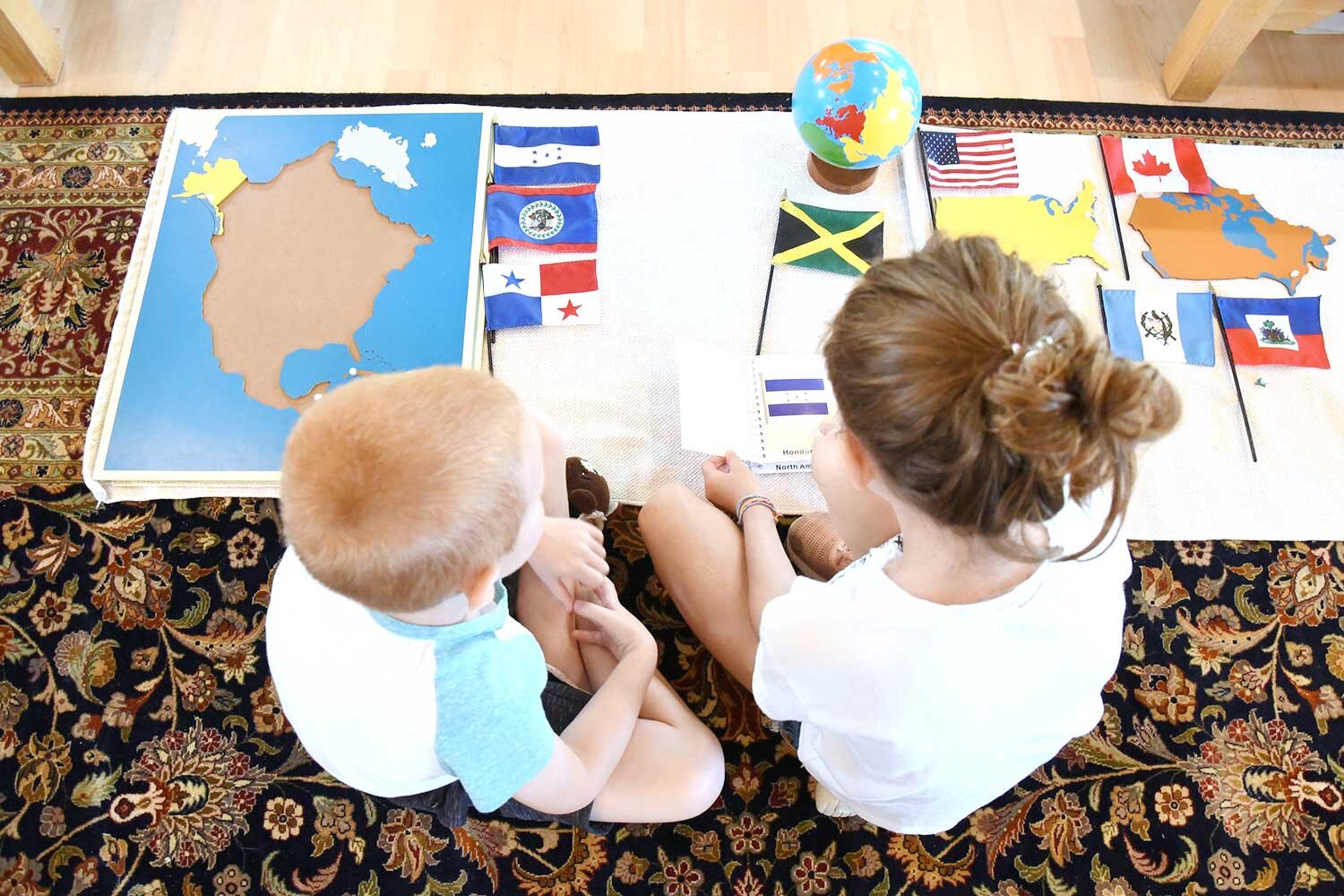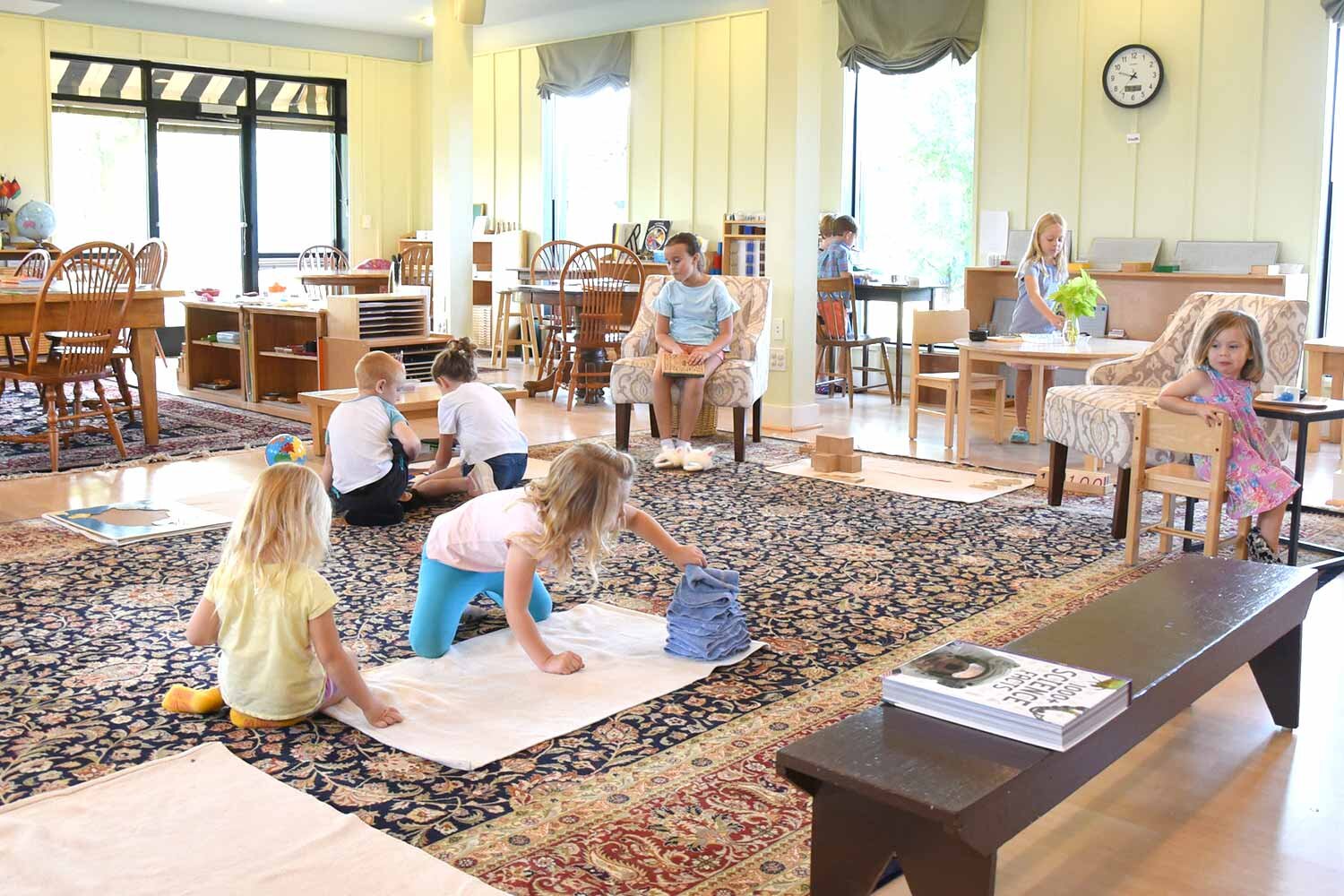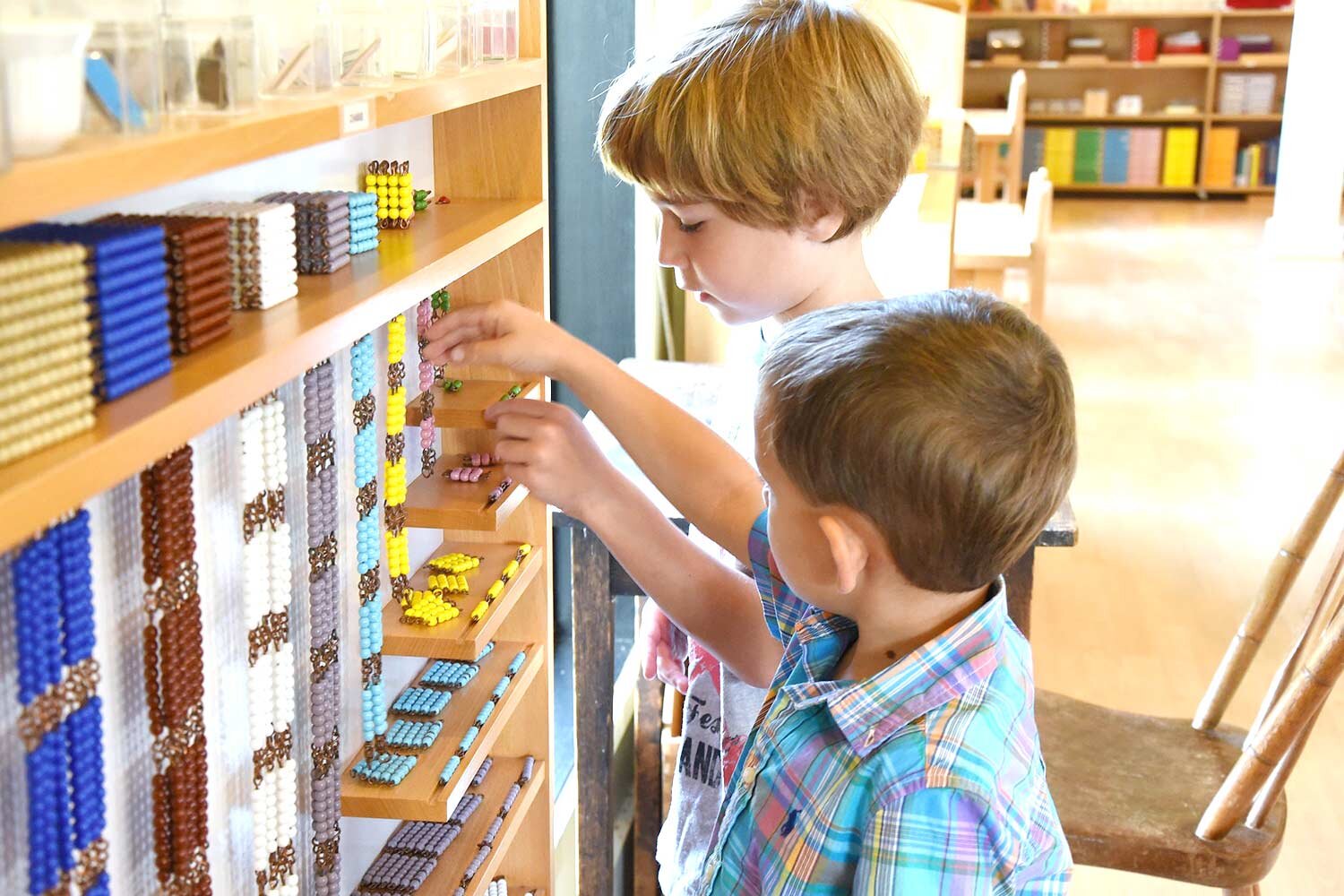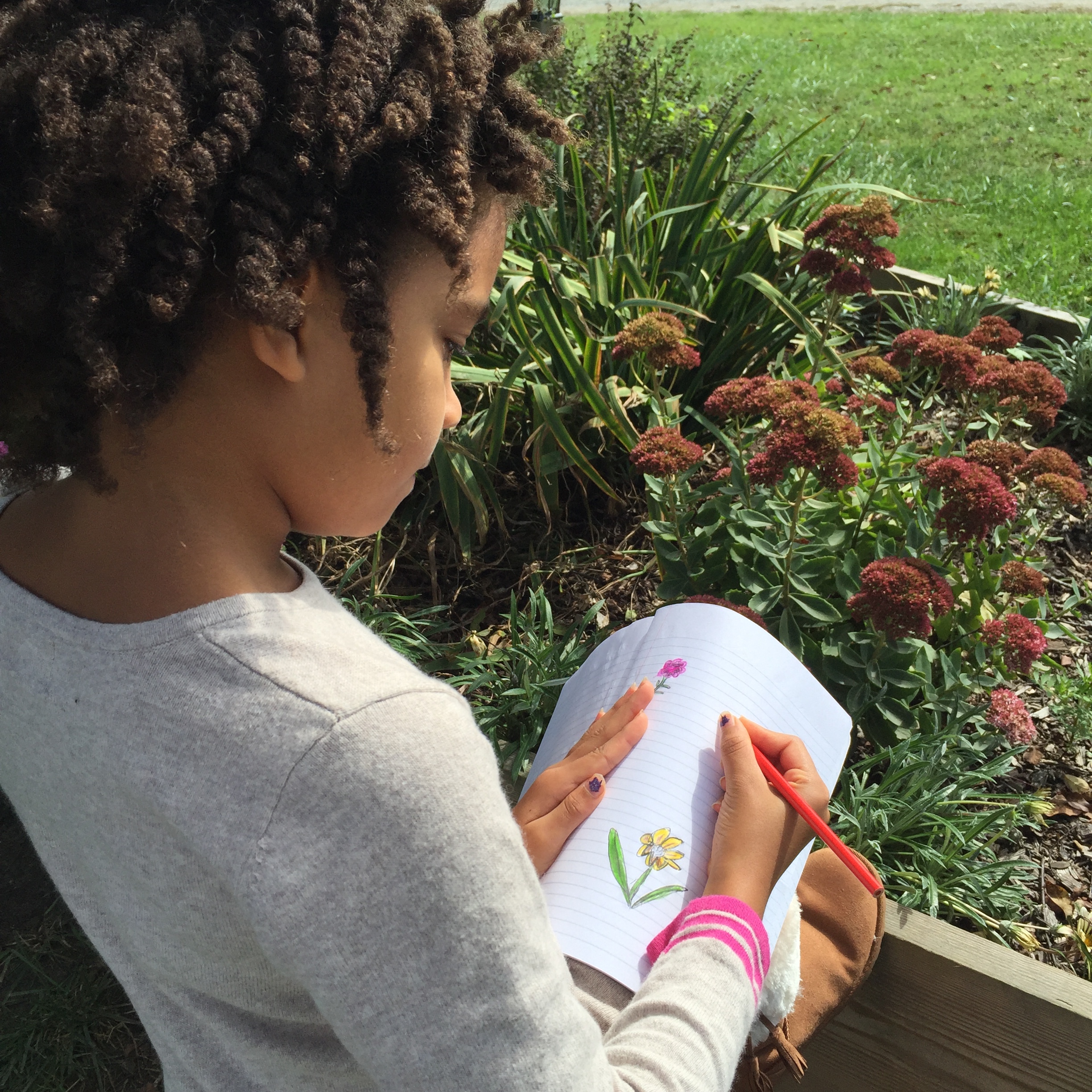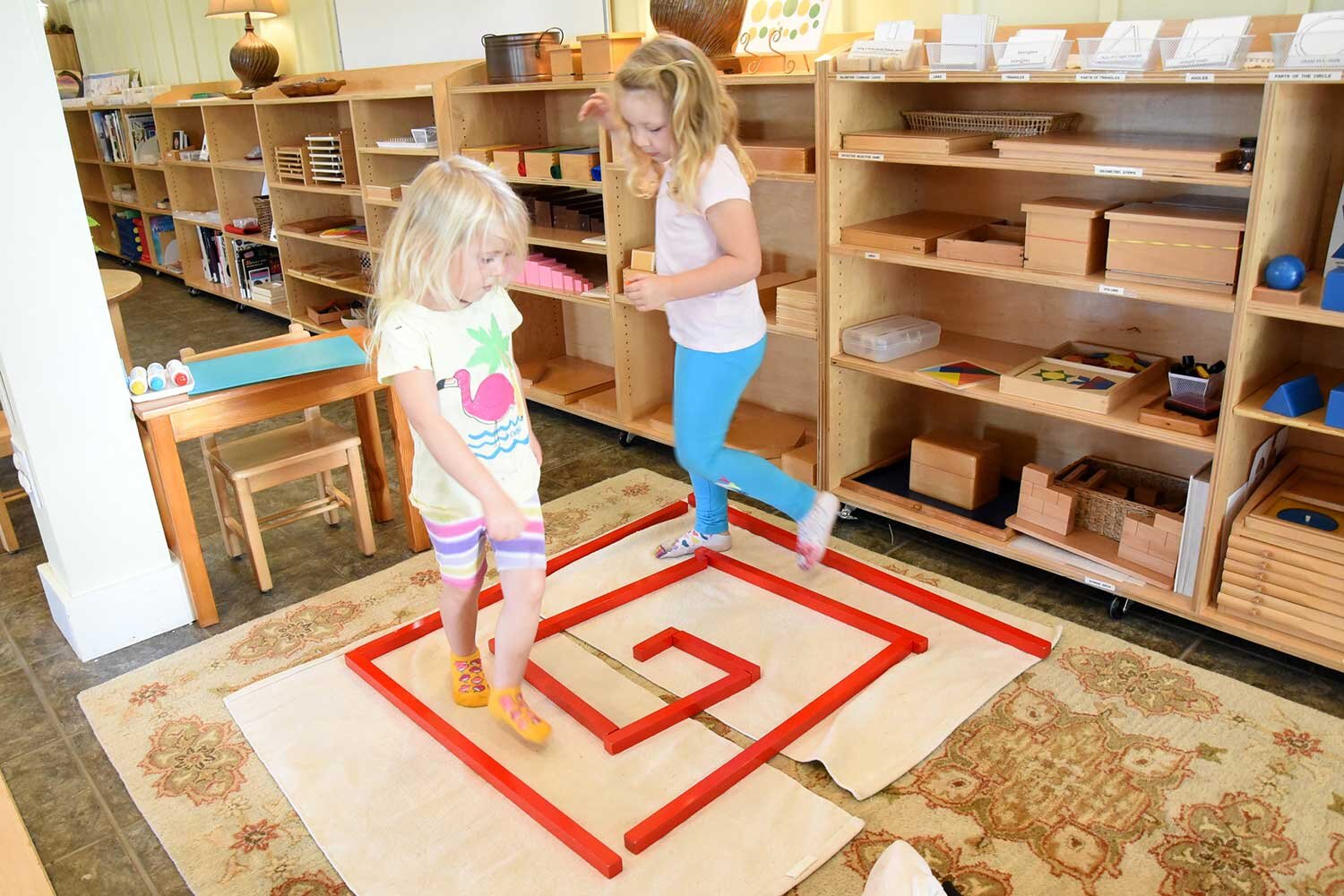Primary Education (Ages 3-6)
In its maiden year, Primary children begin their day at 8:15am with a 3-hour work cycle. During this time, children engage in the structured environment as they feel compelled. The older children have taken to helping the younger students become acclimated to their new surroundings! Two teachers are available to assist and direct the students if needed. Rain, snow or sunshine: they are always outside as it provides an amazing opportunity to learn about their world through play, exploration and exercise. Half day children depart at 12pm and the full day children have lunch, outdoor time and nap/rest time.
What does a Montessori education mean? Here at AIS, our Montessori program focuses on fostering the potentialities present in every child:
Intrinsic motivation
Internalized ground rules and ability to work with authority
Creativity and originality of thought
Social and environmental responsibility
Autonomy
Confidence and competence
Spiritual awareness
Academic preparation
The Montessori method of education was developed by physician, philosopher and educator, Dr. Maria Montessori (1870-1952). Her revolutionary approach to education rests on a deep and abiding respect for the child, a respect that is manifested in every aspect of the classroom: child-sized furniture, carefully designed materials that allow the child to see her own achievements and self-correct any mistakes, and an environment that encourages the child to follow her natural impulse to work and learn.
Recent cognitive and behavioral research continues to support Montessori's remarkable methods. As our understanding of development, motivation and achievement increases, Montessori's approach to education resonates all the more with parents, educators and administrators. One resource that offers parents a chance to understand Montessori's work in the context of recent research is Angeline Stoll Lillard's 2005 publication, Montessori: The Science Behind the Genius. In this work, Lillard explains how, nearly a century after Maria Montessori created her groundbreaking method of education, contemporary science is beginning to catch up. More recently, in 2007, an extraordinary paper was published in the journal Child Development by Stanford social psychologist Carol Dweck. In her longitudinal study, Dr. Dweck proves that children's achievement is inextricably linked to their being taught that their intelligence is not locked in, that their brains can continue to grow, and that "talent" is largely a matter of confidence in their own brain plasticity. This notion that seems so new and surprising is, in fact, the foundation of a century of Montessori education, and it lies at the heart of everything we do at Adams International School.
Every day at AIS, the very Montessori principles that set countless children on the path to success -- among them, Amazon founder Jeff Bezos, Nobel Prize winner Gabriel Garcia Marquez, Google founders Sergey Brin and Larry Page, and cookbook authors and food ambassadors Julia Child and Alice Waters -- are being put into practice on our peaceful and beautiful campus, a learning community that is designed to help children to discover the very best in themselves.
For more information on Maria Montessori and the Montessori Method, please see our Frequently Asked Questions or Suggested Reading pages.
“It is true that we cannot make a genius. We can only give to teach child the chance to fulfill his potential possibilities.”

